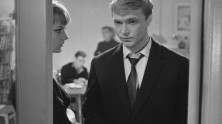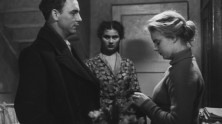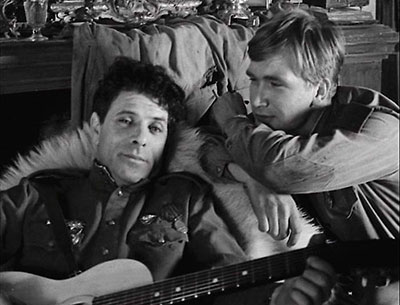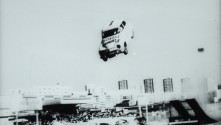
The Two Fedors
(Dva Fyodora)
With Vasily Shukshin, Tamara Syomina, Nikolai Chursin.
Russia, 1958, 35mm, black & white, 88 min.
Russian with English subtitles.
The war is over. A train is chugging across the country, bearing a single inscription: Victory. From a throng of soldiers singing and sharing loaves of bread, we soon distinguish Fedor, who then picks up an orphan boy, also named Fedor, at a whistle-stop. They decide to live together.
Thus begins Khutsiev's first solo effort after parting ways with Feliks Mironer, citing creative differences: the latter favored more rigorously structured scripts while the former sought an atmosphere free from the constraints of classical narratives. Nevertheless, The Two Fedors still ranks among the director's most stringent offerings. Exceptionally simple on the formal level—evoking the wise simplicity of Boris Barnet or Yasujiro Ozu's The Only Son (1936)—Khutsiev introduces melodramatic conflict into the Fedors’ idyll in the form of a woman, yet focuses less on the love story than the workaday toils of reshaping a civilization. Shot on location in Odessa, his realistic film meticulously captures the long and hard transition from war to peace––a peace, in fact, not nearly as picture-perfect as the two orphaned strangers imagined when they met on a train. Pyotr Todorovsky operated the camera and Vasily Shukshin as Fedor Sr.—not just a new folk hero, but an outstanding filmmaker and actor—announced himself to the world, and a new Soviet cinema was born.



















